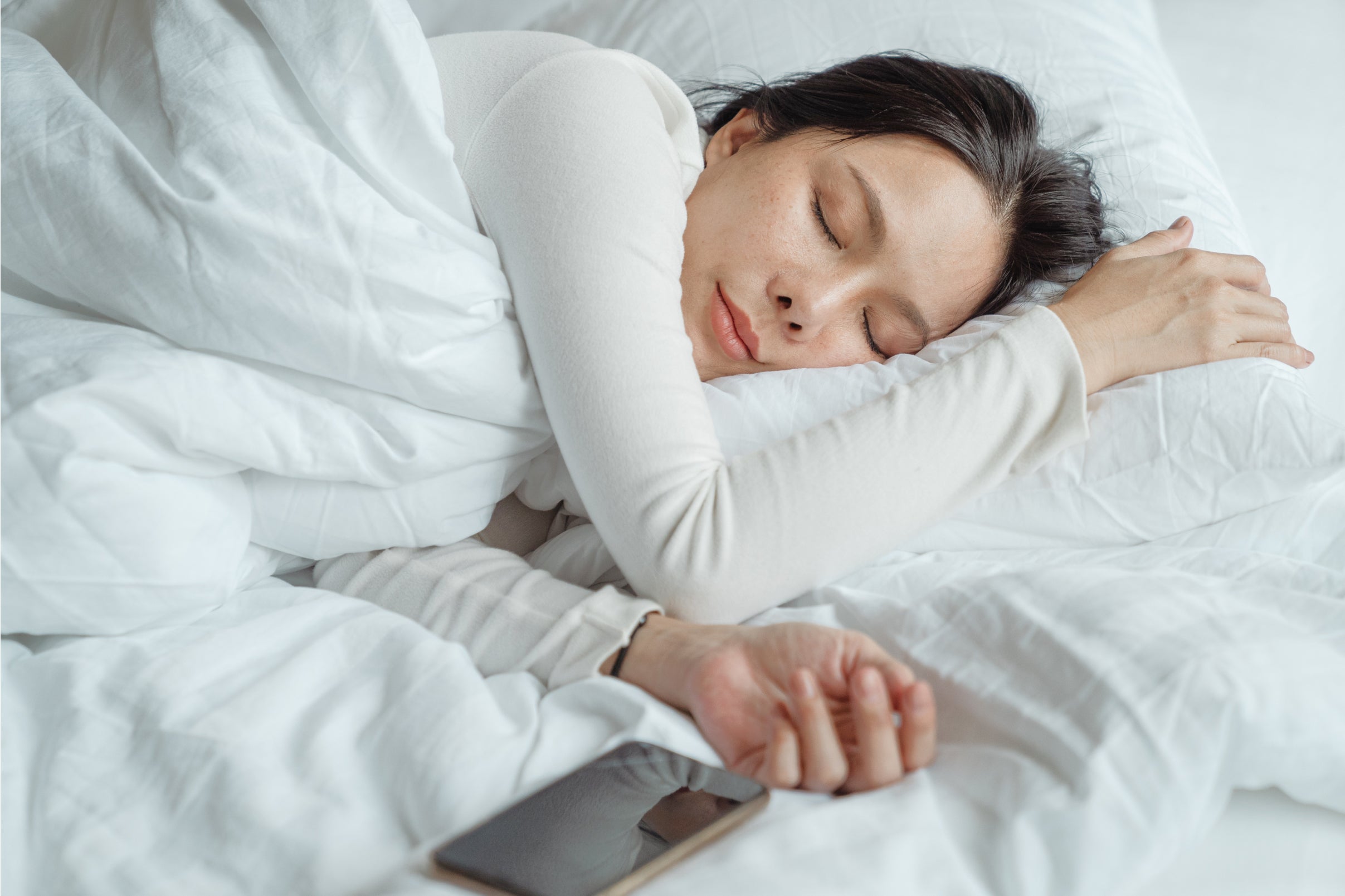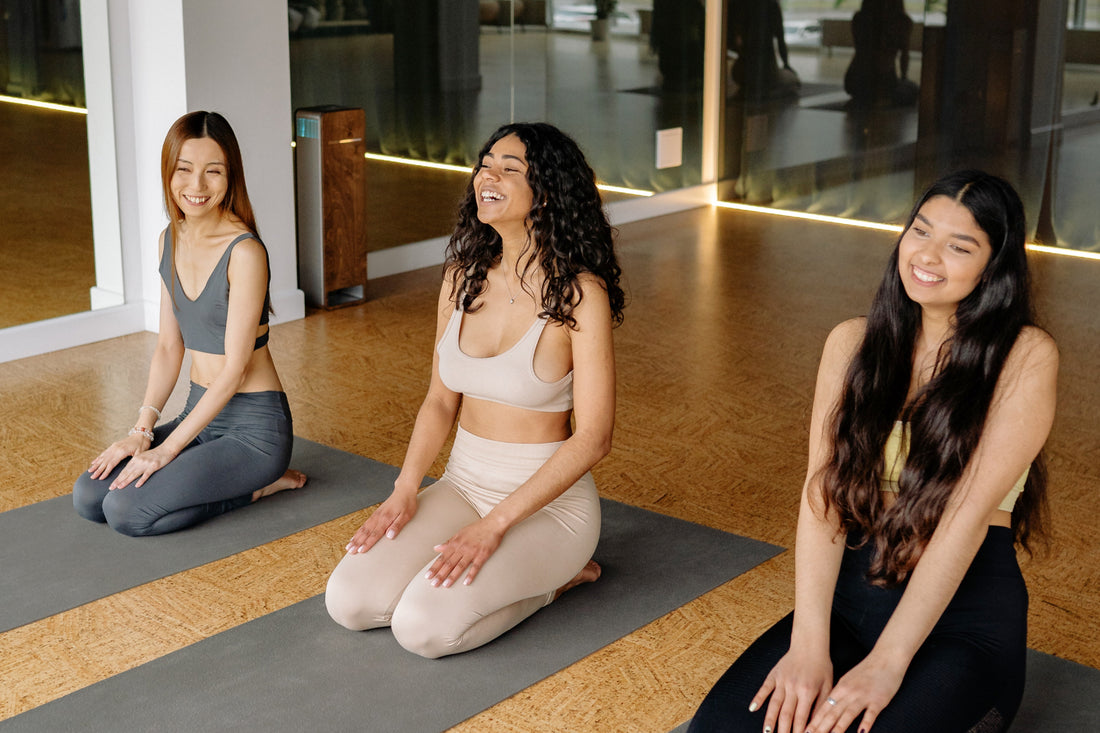Foto de encabezado de Ketut Subiyanto de Pexels
El sueño es de suma importancia para nosotros. Permite que nuestro cuerpo y nuestros órganos descansen, se recarguen y se refresquen para el día siguiente. Nos ayuda a mantenernos en forma, saludables y activos. Después de un largo día de trabajo, el sueño es todo lo que necesitamos para calmar nuestra mente y relajar nuestro cuerpo.
Dicho esto, el estrés diario de nuestra vida moderna, combinado con una dieta irregular y poco saludable y un estilo de vida sedentario, a menudo conducen a situaciones en las que las personas no pueden dormir lo suficiente todos los días. Dormir bien por la noche se está convirtiendo rápidamente en algo del pasado, y es un mal presagio, por decir lo menos.
La gente se toma muy a la ligera sus malos patrones de sueño. Esta es una de las razones por las que las investigaciones sugieren que “el 35 % de los estadounidenses informan que su calidad de sueño es 'mala' o 'solo regular', mientras que el 28 % de los estadounidenses informaron que no se despertaron sintiéndose renovados en ninguno de los últimos siete días. Esto implica muy poco tiempo de sueño y tiene un impacto significativamente negativo para nuestros cuerpos. Incluso afecta su desempeño diario en el trabajo y afecta la calidad de su vida social.
¿Qué problemas enfrentamos debido a los malos hábitos de sueño?
Los estudios han sugerido que el mínimo de sueño necesario en un día varía de persona a persona. Depende de varios factores, entre ellos la edad, el género, la ubicación geológica, la dieta, la actividad física y los hábitos. Se ha establecido que todo adulto sano debería dormir un mínimo de 7 a 9 horas, mientras que los niños y adolescentes deberían intentar dormir entre 8 y 10 horas. Esto debería ser de una sola vez.
Si no duermes lo suficiente durante largos periodos de tiempo, esto puede provocar diversos problemas, desde enfermedades crónicas hasta un bajo rendimiento y una vida social deficiente. A continuación, presentamos un resumen de los problemas y desafíos a los que podrías enfrentarte si tienes malos patrones de sueño de manera constante.
Aumento de peso
Los estudios han demostrado que dormir menos puede provocar un aumento de peso. Investigaciones recientes incluso afirman que los niños que no duermen lo suficiente tienen un 89 % de probabilidades de tener sobrepeso, mientras que el riesgo en los adultos es de hasta el 55 %.
 Foto de Karolina Grabowska de Pexels
Foto de Karolina Grabowska de Pexels
Enfermedades crónicas
La falta de sueño aumenta gravemente el riesgo de padecer enfermedades crónicas, como enfermedades cardíacas, accidentes cerebrovasculares, inflamaciones, diabetes tipo 2 e incluso hipertensión. Un estudio reciente descubrió que las personas que duermen solo entre 5 y 6 horas al día pueden desarrollar síntomas de prediabetes, mientras que otra investigación confirmó la conexión entre la falta de sueño y las enfermedades cardíacas o los accidentes cerebrovasculares.
Estrés y depresión
Un reciente análisis ha revelado que el estrés y el sueño están directamente relacionados. El análisis proporciona una cifra estimada de que el 90% de las personas que sufren episodios de estrés o depresión tienen dificultades para dormir. La falta de sueño empeora la situación y puede incluso provocar enfermedades mentales.

Fotografía de Nathan Cowley en Pexels
La falta de sueño no solo provoca enfermedades, sino que también puede quitarte la confianza en ti mismo. Cuando no duermes lo suficiente, tu cerebro no puede funcionar a plena capacidad y tiendes a cometer más errores. Generalmente te sientes deprimido y abatido, y te resulta extremadamente difícil afrontar el día.
Problemas gastrointestinales
La falta de sueño tiene una relación contraproducente con el intestino. Si tienes problemas para dormir adecuadamente, tienes más probabilidades de desarrollar enfermedad por reflujo gastroesofágico (ERGE), enfermedad inflamatoria intestinal (EII) o dispepsia funcional .
De manera similar, si ya padeces alguno de estos problemas, también tendrás problemas para dormir. Además, la falta de sueño adecuado aumenta otros problemas, como la alteración del equilibrio del microbioma intestinal, lo que provoca acidez estomacal, acidez y estreñimiento, entre otros.
Mala vida social
La falta de sueño provoca falta de energía y falta de voluntad para interactuar con los demás. Te llena de negatividad y arruina tu vida social. Tu familia también sufre las consecuencias, ya que puedes sufrir cambios repentinos de humor, ataques de ira, estrés y emociones.
¿Pueden los entrenamientos ayudar a mejorar el sueño?
Sí, sin duda los ejercicios y las rutinas de ejercicio ayudan a mejorar el sueño. Lo hacen abordando diversos problemas que afectan al sueño. En primer lugar, reducen los niveles de estrés y calman la mente antes de acostarse. También ayudan a aliviar toda la presión relacionada con el trabajo y promueven un sueño profundo.
 Foto de Karolina Grabowska de Pexels
Foto de Karolina Grabowska de Pexels
Hacer ejercicio ayuda a que se produzcan maravillas fisiológicas en el cuerpo. Los estudios han establecido una conexión entre hacer ejercicio de forma adecuada y dormir mejor. La conexión se basa en la liberación de un compuesto químico conocido como endorfina, que crea un ritmo circadiano saludable, que es como un reloj corporal interno que ayuda al funcionamiento del cuerpo, la adaptación y el sueño.
Hacer ejercicio antes de acostarse puede ser más útil si lo que busca es dormir perfectamente. Necesita un plan de ejercicios suaves que le refresque y relaje la mente. También relaja los músculos y le permite conciliar el sueño rápidamente. Estos ejercicios son mejores que el entrenamiento de fuerza o el cardio, ya que aumentan la frecuencia cardíaca y el flujo sanguíneo, lo que nunca es ideal para esos momentos antes de acostarse.
A continuación se muestran algunos de los mejores ejercicios relajantes que no solo te mantendrán en forma, sino que también promoverán una buena noche de sueño:
Estiramiento de los isquiotibiales
Para realizar este ejercicio, debes colocarte de pie a 2 o 3 pies de distancia de tu cama y mirarla de frente. Ahora procede manteniendo el pie derecho sobre la cama, flexionándolo un poco y moviéndolo hacia adelante hasta que sientas un estiramiento en el tendón de la corva. Ahora gira el pie 180 grados 10 veces sin mover el cuerpo. Ahora cambia de pie y repite el procedimiento. Esto te ayudará a tener un sueño más profundo.
Giro de la columna
Se trata de un ejercicio muy sencillo que ayuda a relajar el cuerpo y a relajar los músculos. Para ello, hay que tumbarse boca arriba en la cama y llevar las rodillas hacia la zona del pecho. Ahora hay que estirar completamente la pierna derecha y colocarla sobre la cama.
 Foto de Karolina Grabowska de Pexels
Foto de Karolina Grabowska de Pexels
Ahora coloca tu mano derecha sobre la izquierda y lleva la izquierda por el cuerpo hacia la derecha. Gira la cabeza hacia la izquierda. Sentirás un estiramiento en el cuello. No lo estires demasiado. Mantén una presión leve y afloja después de un estiramiento suave. Ahora cambia de lado y comienza el proceso nuevamente. Hazlo 3 o 4 veces antes de irte a dormir.
Flor de la espalda
Para realizar este relajante ejercicio, deberás tumbarte boca arriba en la cama y colocar una almohada debajo de las caderas. Ahora lleva ambas rodillas hacia el pecho y envuelve ambas piernas con los brazos.
Mantén la postura durante 15 a 20 segundos mientras respiras lenta y profundamente. Baja los pies, relájate un poco y repite el procedimiento al menos 5 veces. Este ejercicio es bastante simple y directo, pero muy relajante para la mente y los músculos.
Respiración 4-7-8
Este es un ejercicio de respiración avanzado en el que controlas la velocidad de tu respiración para disminuir tu frecuencia cardíaca y presión arterial y tener una mejor rutina de sueño. Para hacer este ejercicio, debes hacer presión con la punta de la lengua en el paladar detrás de los dientes frontales.
Ahora inhala por la nariz durante 4 segundos y luego aguanta la respiración durante los siguientes 7 segundos. Después de esto, debes exhalar, pero por la boca en lugar de por la nariz, hasta contar hasta 8. Puede que al principio te resulte difícil, pero con un poco de práctica, podrás hacerlo con bastante facilidad. Puedes aumentar el tiempo una vez que te resulte cómodo.
 Fotografía de Gabby K en Pexels
Fotografía de Gabby K en Pexels
La postura del niño
Este ejercicio tiene como objetivo liberar la tensión en la espalda y los hombros y proporciona un efecto reconfortante. Para realizar este ejercicio, debes arrodillarte de manera que tus caderas toquen tus pies. Ahora, inclina el torso hacia abajo, estirando los brazos hacia adelante. Tu cara debe estar un poco por encima del piso y tu pecho debe estar entre los muslos.
Ahora ponte una pelota o un rodillo debajo de la frente e intenta caminar hasta que el estiramiento de tus brazos te lo permita. Hazlo rodar suavemente de atrás hacia adelante y luego de nuevo hacia atrás. Te dará un pequeño masaje y aliviará todo el estrés y la tensión.
Conclusión
Dormir es tan importante como tener una dieta saludable o hacer ejercicio. Si quieres llevar un estilo de vida saludable y no quieres que las enfermedades o los problemas de salud llamen a tu puerta con frecuencia, debes asegurarte de dormir lo suficiente todos los días.
Las exigencias laborales y las presiones diarias de la vida pueden dificultar el descanso diario. Sin embargo, adoptar algunas medidas en la rutina diaria, comer bien y hacer ejercicio a diario puede ayudar a mejorar el sueño. Puedes consultar los ejercicios de relajación específicos para el sueño que se han compartido anteriormente o estos trucos para dormir mejor y comenzar a adoptar hábitos de sueño saludables desde hoy mismo.






